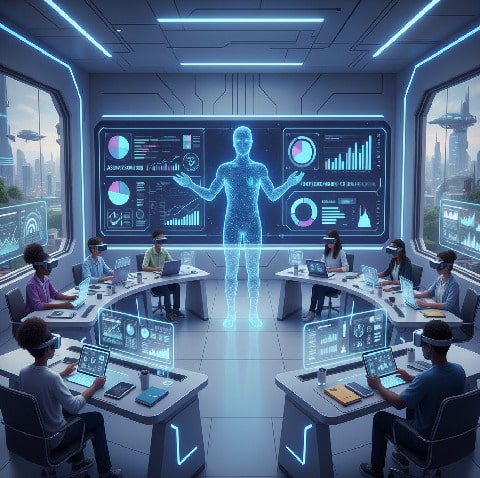Among the many attractions of South Korea, Jeju karaoke (제주 가라오케) stands out as a cultural staple that blends entertainment with community bonding. Tourists and locals alike enjoy the vibrant atmosphere, where songs become shared memories and evenings transform into celebrations. On Jeju Island, the popularity of karaoke reflects how spaces of recreation adapt to changing times while still holding cultural significance. Interestingly, a similar transformation is taking place in education, where artificial intelligence (AI) is reshaping how students learn and engage with knowledge.
Gradual Shift towards Intelligent Learning Tools

AI in education is no longer a futuristic concept. Artificial Intelligence has transformed classrooms worldwide. AI is no longer science fiction. It is a force that is bringing massive change to the education system. Adaptive learning platforms now analyze student progress in real time, adjusting lessons to match each learner’s pace and needs. This level of personalization ensures that struggling students receive targeted support while advanced learners stay engaged with appropriately challenging material.
At the same time, teachers gain access to valuable insights and data patterns, allowing them to better understand classroom dynamics and make informed instructional decisions. The result is a more efficient, inclusive, and student-centered learning environment that redefines how knowledge is delivered and absorbed.
Jeju Karaoke and the Lesson of Customization
Just as karaoke systems let participants choose songs that fit their mood or vocal range, AI in education tailors lessons to match each student’s abilities and learning style. Rather than depending solely on traditional textbooks or rigid teaching methods, AI introduces interactive lessons. It uses simulations, real-time feedback, and gamified activities that make lessons more engaging.
This personalization not only keeps learners motivated but also helps address gaps in comprehension more effectively than one-size-fits-all approaches. Thus, ensuring a more meaningful and enjoyable learning experience.
Expanding Access beyond the Classroom
AI-powered education is breaking traditional barriers of geography and time, creating opportunities for learners regardless of location.
Students in remote areas can now connect with virtual tutors, access online study resources, and even collaborate on group projects without needing to be in the same classroom.
AI-driven language learning apps provide instant pronunciation feedback. Math platforms guide learners step by step through complex problems, which makes the subject easier to grasp. This flexibility extends education beyond the walls of schools, offering a more inclusive, accessible, and personalized learning experience for students across the globe.
Preparing for the Future Workforce
Beyond enhancing academic performance, AI in education plays a crucial role in preparing students for the future workforce. By introducing learners to tools such as data analysis software, problem-solving algorithms, and digital collaboration platforms, AI nurtures adaptability, creativity, and critical thinking.
These skills are highly valued in industries that are rapidly adopting AI-driven technologies, automation, and smart systems. Students who gain early exposure to such innovations are better positioned to thrive in competitive job markets, where technological literacy is no longer optional but essential.
In this way, AI-powered learning is not just about mastering subjects, it’s about building the resilience and versatility needed in a world shaped by constant technological evolution.
